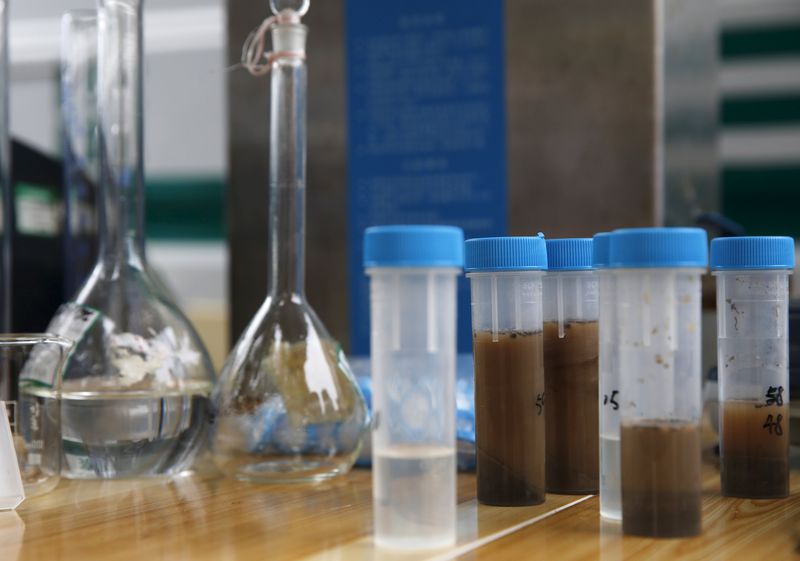By Sue-Lin Wong
SHANGHAI, China (Reuters) - Chinese authorities warned that cyanide levels in the waters around the Tianjin Port explosion site had risen to as much as 277 times acceptable levels although they declared that the city's drinking water was safe.
The local government, under pressure from China's leaders in Beijing to improve industrial safety, also said it would relocate chemical plants away from the area, where thousands of residents were forced to evacuate last week after the release of toxic chemicals by explosions that killed 114 people.
China's ruling Politburo Standing Committee called on all levels of governments during a special meeting on Thursday to do more to implement and monitor industrial safety rules, the official Xinhua news agency reported.
"Recently, there's been a series of serious accidents in certain places, once again exposing grave safety risks," Xinhua quoted from the meeting, which was called by President Xi Jinping to address the Tianjin explosions.
A report from the Tianjin Environmental Protection Bureau issued on Wednesday said that tests conducted the day before showed that cyanide levels in the river, sea and waste water in the evacuated area around the explosion site had risen sharply since the deadly blasts. One testing site at the mouth of a rain water pipe recorded cyanide levels 277 times above acceptable standards.
Drinking water in Tianjin, however, met national standards, according to a separate statement from health authorities on Tuesday.
The government has confirmed there were about 700 tonnes of the deadly chemical sodium cyanide in the warehouse that blew up late last Wednesday.
Tianjin, the world's 10th-busiest port, will relocate chemical plants from the Tianjin Binhai New Area where the blasts occurred to the Nangang Industrial Zone, 25 km (15.5 miles) away, according to the official China Daily, citing Tianjin Mayor Huang Xingguo.
The Communist party's anti-graft watchdog promised to crack down both on corruption and on those responsible for violating laws and regulations which had led to the explosions, but stressed the importance of maintaining political stability, according to a statement on the Central Commission for Discipline Inspection website on Thursday.
Chinese state media on Wednesday pointed fingers at executives of Ruihai, the company which owns the chemical warehouses, over the disaster, saying they used connections to obtain fire safety and environmental approvals.
The Tianjin government announced on Wednesday that after days of investigations, they had determined the warehouses contained 2,500 tonnes of 40 types of dangerous goods, classified into three categories, according to the official Xinhua news agency.
There were 1,300 tonnes of potentially explosive oxidising chemicals, including ammonium nitrate and potassium nitrate, 500 tonnes of flammables, including sodium and magnesium, and 700 tonnes of deadly poisons, mainly sodium cyanide.
Apartment buildings and a railway station were closer to the warehouse than allowed by Chinese regulations on storing dangerous materials, state media reported.
The Tianjin government said it would conduct third-party assessments to determine whether to buy back some of the estimated 17,000 apartments damaged by the blasts, after hundreds of local residents demanded the government either provide compensation or buy back their damaged or destroyed property.

"Apartments that should be torn down will be torn down, apartments that need to be rebuilt will be rebuilt, apartments that need to be repurchased will be repurchased," said Vice Mayor Zong Guoying.